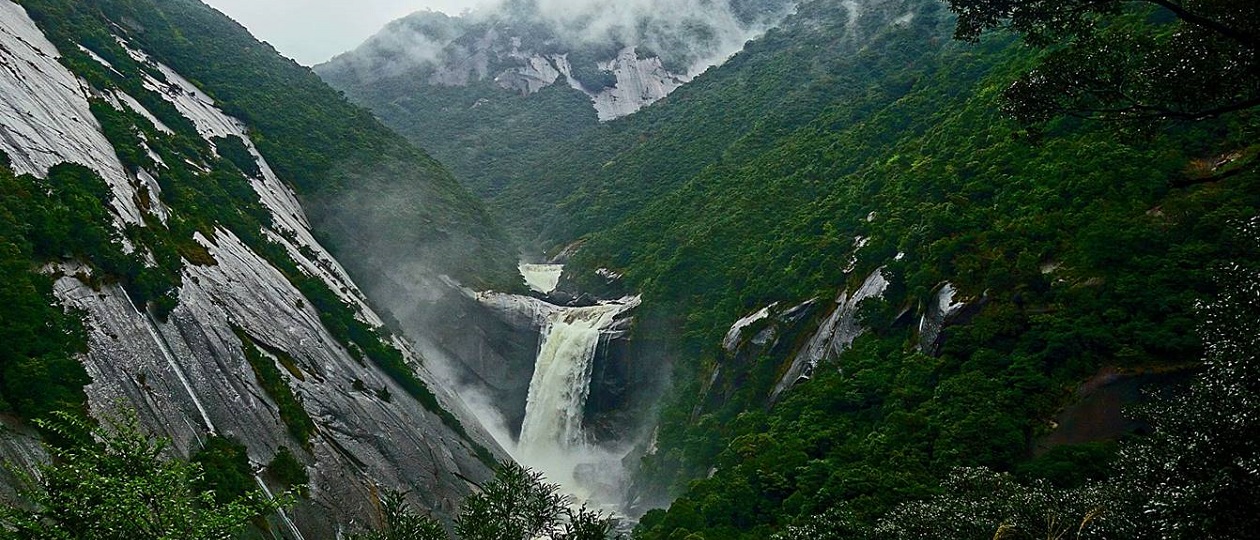
Yakushima (屋久島) is undoubtedly best-known to modern visitors through its connection with the 1997 Hayao Miyazaki animated film, Princess Mononoke.
He visited the island for inspiration for his historical fantasy film and its environmental message is stark and affecting — a warning to a modern generation teetering on the edge of climate Armageddon. The beauty he found there, a beauty he desperately wanted to preserve has proved a lure for tourists ever since.
Our trip in the summer of 2018 focused on a 4-hour hike through Shiratani Unsuikyo, now commonly monikered “Mononoke Forest”. The valley reaches an elevation of 900m, affording visitors a breath-taking view upon arrival at the summit. Walked in summer, it is a hot, humid, sometimes deafening affair, with the various insects providing a chorus of staccato screeching. Our walk included a sighting of the local sika deer. We were treated to the sight of a young female drinking from a pool in a sunlit clearing. It was impossible not to think of the fantastical deer in Princess Mononoke, their grace and dignity providing the heart of the story.
One modern tradition in “Mononoke Forest” is to place a small Kodama, a folkloric tree spirit, in amongst the lush, moss covered section of the hike in an attempt to mimic their playful, enigmatic appearances in the film. We duly did so, taking the requisite pictures and endeavouring to capture the light as it danced through the trees and glistened on the water.
The final section of the climb is extremely steep, serving to heighten the sense of drama and anticipation of the final vista. The rock we found there is a clear influence on an important scene in Mononoke, a vantage point from which the central wolf pack survey their threatened domain. It is an emotional moment, full of pathos, pride and uncertainty, as the family grapple with the era-ending effects of climate destruction in their world. It was hard not to find parallels as we sat and gazed over the labyrinthine forest below, wondering for how long such sights will provide delight at what is, rather than despair at what once was.






One comment
Sebastian Tałach
26.06.2022 at 00:55
I want to thnx for the efforts you have put in composing this blog. I am hoping the same top-grade blog post from you in the future as well. In fact your creative has inspired me to get my own blog now. Really the blogging is spreading its wings quickly. Your write up is a good model of it.